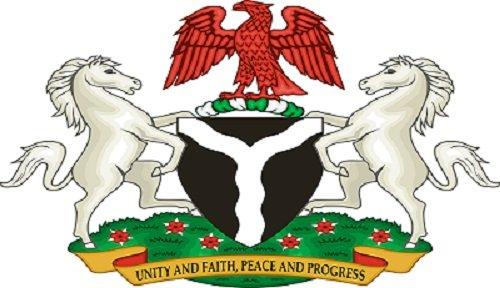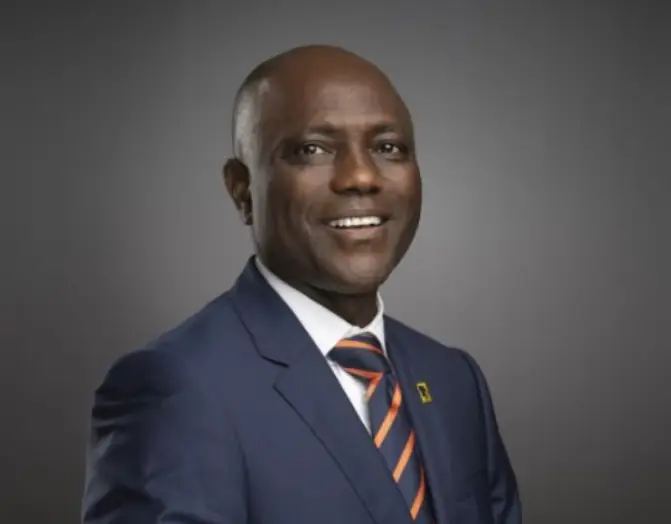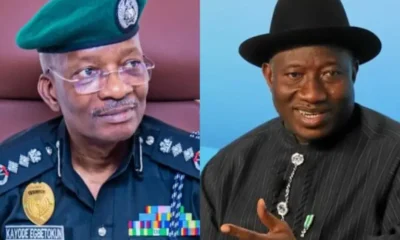Business
Heavy Criticism For FG As 24 States Lose Foreign Investments
Published
2 years agoon
By
Editor
The Catholic Bishops’ Conference of Nigeria, the Sultan of Sokoto, Alhaji Abubakar Sa’ad lll- led Jamaatul Nasril Islam, some state governments and the Manufacturers’ Association of Nigeria have taken a swipe at the Federal Government over its failure to address the rising insecurity in the country.
The groups stated this on Monday as killings and other forms of insecurity took a toll on investments in the country with foreign investors shunning 24 states in 2021.
Earlier on Monday, the National Bureau of Statistics released data, which indicated that Nigeria generated a total of $698.7m from Foreign Direct Investments in 2021.
According to data from the NBS, the FDI generated in 2021 was the lowest the country recorded in 10 years.
FDI is one of the three major types of investments and a critical source of capital inflow into the country.
Other sources include foreign portfolio investment, foreign loans, and trade credits, among other investments.
NBS defines FDI as an investment whereby the investor has some control or a significant degree of influence on the management of a domestic enterprise.
READ ALSO: Nigeria’s Debt Set To Hit N45trn As Plan To Borrow Additional N6.39trn Emerges
It notes that the FDI occurs when the investor has enough equity in the enterprise to entitle them to 10 per cent or more of the voting rights in that company.
A breakdown of FDI in Nigeria over the last 10 years shows that in 2012, FDI stood at $2.60bn, it declined to $1.27bn in 2013 but rose to $2.27bn in 2014.
FDI fell again in 2015 to $1.41bn; it fell further to $1.04bn in 2016 and to $981.75m in 2017.
Further analysis of data from the NBS revealed that the FDI rose again to $1.19bn in 2018 but dropped by $256m to $934.34m in 2019.
The latest capital importation report from the bureau stated that the FDI fell by $332m to $698.78m in 2021 from $1.028bn in 2020.
24 states attracted $0 foreign investments
The report also revealed that 24 states in the country failed to attract any foreign investment last year.
These states are Adamawa, Bauchi, Bayelsa, Benue, Borno, Cross River, Ebonyi, Edo, Enugu, Gombe, Imo, Jigawa, Kaduna, Katsina, Kebbi, Kogi, Nasarawa, Niger, Ondo, Plateau, Sokoto, Taraba, Yobe and Zamfara.
Also, 10 out of the 24 states failed to attract foreign investments in the last three years.
The states are Bayelsa, Ebonyi, Gombe, Jigawa, Kebbi, Kogi, Plateau, Taraba, Yobe and Zamfara.
Manufacturers blame insecurity
The Chairman, Infrastructure Committee of MAN, Ibrahim Usman, said that aside from the COVID-19 pandemic that affected a number of companies abroad, there was the issue of insecurity plaguing the country.
READ ALSO: N2.6 Trillion Debt: Reps Summon NNPC, NDDC For Investigation
He said, “Since the COVID-19 pandemic, a lot of the companies that invest abroad have been affected by the pandemic. That is a major cause. Secondly, the insecurity in the nation has continued to go unabated. Nobody wants to invest in a country where there is so much insecurity. Investments thrive only where there is peace and security.”
Issue of foreign exchange, policy somersault make investment in Nigeria risky – MAN
Usman also said that the lack of stable power supply is affecting the productive sector, which is meant to attract foreign investments.
“Also, the availability of electricity is directly related to the advancement in terms of investments. People normally invest in the productive sector. The productive sector cannot operate without adequate reliable, affordable electricity. That’s another major cause. We haven’t made the stride we are supposed to have in terms of electricity supply. The Nigerian electricity supply industry is still at the lowest point,” Usman said.
He added that there was also the issue of foreign exchange and lack of consistent policies, which had made investing in the country highly risky.
Usman added, “Also, there is the issue of foreign exchange. A lot of times we do policy somersault. The government can suddenly come up with a new policy that discourages investors. There must be consistency in policymaking because investors plan 10-20 years ahead, and sudden changing policies can affect their investments.”
Exchange rate affecting business – LCCI
Also, the Deputy President of the Lagos Chamber of Commerce and Industry, Gabriel Idahosa, identified three factors responsible for the steady decline in Nigeria’s FDI.
According to him, the major factor is the unpredictability of Nigeria’s foreign exchange market and the devaluation of the naira.
He explained that foreign investors were sceptical of investing in Nigeria because the value of their returns would have declined in the future due to the naira devaluation.
“Since 1990, the value of the naira has been on the decline and projection in the near future is not showing any significant difference,” he said.
Idahosa, who is a chartered accountant, noted that investors were also reluctant to invest in a country where the cost of doing business is high. He explained that the high cost of electricity in Nigeria, inefficient port and rail systems were undoing Nigeria and its quest for FDI.
“Also, our Company Income Tax is among the highest in the world. Most countries have 15-16 per cent of thereabout, but ours is 32.5 per cent. Most investors are going to places where taxes are low and moving to countries where governments are looking at the number of jobs created rather than high taxes,” Idahosa noted.
He urged the Nigerian government to address these challenges urgently to drive FDI into Nigeria.
Also speaking to The PUNCH, the Managing Director of Cowry Asset Management Limited, Johnson Chukwu, said that investors were looking for countries with economic and political stability, and good economic growth.
According to him, the country experienced contracted growth due to the pandemic and is also battling insecurity, which has been discouraging foreign investments.
Chukwu said, “Foreign Direct Investments go into countries with very good investment climate. Among those things that foreign investors are looking for are economic and political stability. They are also looking at the growth of the economy. Prior to last year, the economy contracted in 2020. Although it grew by 3.4 per cent last year, investors were looking at a contraction in 2020.
“Secondly, we see a situation where the level of insecurity is high in the country. This discourages foreign investors.”
The Chief Executive Officer, Centre for the Promotion of Private Enterprise, Dr Muda Yusuf, stressed the need for better reforms to strengthen investors’ interest.
He also emphasised the need to address the issue of insecurity plaguing the country.
PUNCH
You may like

The Central Bank of Nigeria (CBN) started fresh and direct sales of US dollars at N1,021 per dollar to Bureau De Change operators.
Nigeria’s apex bank disclosed this in a circular signed by its Director of Trade and Exchange Department Hassan Mahmud.
“We write to inform you of the sale of $10,000 by the Central Bank of Nigeria (CBN) to BDCs at the rate of N1,021/$1. The BDCs are in turn to sell to eligible end users at a spread of NOT MORE THAN 1.5 percent above the purchase price,” the circular posted on its website read.
READ ALSO: Tinubu Unveils African Counter-Terrorism Summit
“ALL eligible BDCs are therefore directed to commence payment of the Naira deposit to the underlisted CBN Naira Deposit Account Numbers from today, Monday, April 22, 2024, and submit confirmation of payment, with other necessary documentations, for disbursement of FX at the respective CBN Branches.”
CBN’s move is coming as the naira is recording a slight depreciation against the dollar after weeks of gains.
In late March, the bank also sold $10,000 to each of the eligible Bureau De Change (BDC) operators in the country at the rate of N1,251/$1.
READ ALSO: Mixed Reactions Trail Video Of Couple’s Customised N200 Notes
Like in the most recent sales, it warned BDCs against breaching terms of the dollar sales, vowing to sanction defaulters “including outright suspension from further participation in the sale”.
The fortunes of the naira have fallen sharply since President Bola Tinubu took over in May. Inflation figures have reached new highs and the cost of living hitting the rooftops.
Nigeria’s currency slid to about N1,900/$ some months ago at the parallel market. But in recent weeks, it has gained against the dollar.
The Nigerian authorities have also doubled down on their crackdown against cryptocurrency platform Binance and illegal BDCs.
On March 1, the CBN revoked the licences of 4,173 BDCs over compliance failures.

Olusegun Alebiosu has been appointed as the Acting Managing Director/Chief Executive Officer of First Bank of Nigeria Limited (FirstBank Group), effective April 2024.
Alebiosu steps into this pivotal role from his previous position as the Executive Director, Chief Risk Officer, and Executive Compliance Officer, a position he held since January 2022.
Alebiosu brings to the helm of FirstBank over 28 years of extensive experience in the banking and financial services industry. His expertise spans various domains including credit risk management, financial planning and control, corporate and commercial banking, agriculture financing, oil and gas, transportation, and project financing.
READ ALSO: JUST IN: Access Holdings Names New Acting CEO
Having embarked on his professional journey in 1991 with Oceanic Bank Plc. (now EcoBank Plc.), Alebiosu has held several notable positions in esteemed financial institutions.
Prior to joining FirstBank in 2016, he served as Chief Risk Officer at Coronation Merchant Bank Limited, Chief Credit Risk Officer at the African Development Bank Group, and Group Head of Credit Policy & Deputy Chief Credit Risk Officer at United Bank for Africa Plc.
Alebiosu’s academic credentials further enrich his professional profile. He is an alumnus of the Harvard School of Government and holds a Bachelor’s degree in Industrial Relations and Personnel Management. Additionally, he obtained a Master’s degree in International Law and Diplomacy from the University of Lagos, as well as a Master’s degree in Development Studies from the London School of Economics and Political Science.
READ ALSO: Meet Newly Appointed Union Bank CEO
A distinguished member of various professional bodies, including the Institute of Chartered Accountants (FCA), Nigeria Institute of Management (ANIM), and Chartered Institute of Bankers of Nigeria (CIBN), Alebiosu is renowned for his commitment to excellence and ethical practices in the banking sector.
Beyond his professional endeavors, Alebiosu is known for his passion for golf and adventure. He is happily married and a proud parent.
With Alebiosu’s appointment, FirstBank of Nigeria Limited anticipates continued growth and innovation under his leadership, reinforcing its position as a leading financial institution in Nigeria and beyond.
Business
CBN Gives New Directive On Lending In Real Estate
Published
1 week agoon
April 17, 2024By
Editor
The Central Bank of Nigeria, CBN, has released a new regulatory directive to enhance lending to the real sector of the Nigerian economy.
The directive, issued on April 17, 2024, with reference number BSD/DIR/PUB/LAB/017/005 and signed by the Acting Director of Banking Supervision, Adetona Adedeji, signifies a notable shift in the bank’s policy towards a more contractionary approach.
In line with the new measures, the CBN has reduced the loan-to-deposit ratio by 15 percentage points, down to 50 per cent.
This move aligns with the CBN’s current monetary tightening policies and reflects the increase in the Cash Reserve ratio rate for banks.
READ ALSO: JUST IN: CBN Gov Sacks Eight Directors, 32 Others
The LDR is a metric used to evaluate a bank’s liquidity by comparing its total loans to its total deposits over the same period, expressed as a percentage.
An excessively high ratio may indicate insufficient liquidity to meet unexpected fund requirements.
All Deposit Money Banks are now mandated to adhere to this revised LDR.
The CBN has stated that average daily figures will be utilised to gauge compliance with this directive.
Furthermore, while DMBs are encouraged to maintain robust risk management practices in their lending activities, the CBN has committed to continuous monitoring of adherence and will adjust the LDR as necessary based on market developments.
READ ALSO: JUST IN: CBN Increases Interest Rate To 24.75%
Adedeji has called on all banks to acknowledge these modifications and adjust their operations accordingly. He emphasised that this regulatory adjustment is anticipated to significantly influence the banking sector and the wider Nigerian economy.
The circular read in part, “Following a shift in the Bank’s policy stance towards a more contractionary approach, it is crucial to revise the loan-to-deposit ratio policy to conform with the CBN’s ongoing monetary tightening.
“Consequently, the CBN has decided to decrease the LDR by 15 percentage points to 50 per cent, proportionate to the rise in the CRR rate for banks.
“All DMBs must maintain this level, and it is advised that average daily figures will still be applied for compliance assessment.
“While DMBs are urged to sustain strong risk management practices concerning their lending operations, the CBN will persist in monitoring compliance, reviewing market developments, and making necessary adjustments to the LDR. Please be guided accordingly.”

DSTV Price Hike: Five Alternatives Nigerians Are Opting For

JUST IN: Oyo LG Polls: Hoodlums Attack Electoral Officials, Snatch Ballot Papers [PHOTO]
BREAKING: Scores Trapped As Building Collapses In Kano
Trending

 Entertainment4 days ago
Entertainment4 days agoBridesmaids’ Dance At Wedding Causes Stir On Social Media [VIDEO/PHOTOS]

 Metro4 days ago
Metro4 days agoVIDEO: ‘UNN Lecturer’ Caught Pants Down With Married Student

 News2 days ago
News2 days agoDrama! Supporters Of Yahaya Bello Perform Rituals to Prevent His Arrest By EFCC [Video]

 News2 days ago
News2 days agoVIDEO: Force PRO Orders Arrest Officers Caught On Video Bashing Driver’s Car

 Headline3 days ago
Headline3 days agoDrama As Women Fight Dirty, Breasts Fall Out During Spring Break Outing In US [PHOTOS/VIDEO]

 Entertainment2 days ago
Entertainment2 days agoNollywood Actor, Zulu Adigwe Is Dead

 Metro2 days ago
Metro2 days agoEdo Cultists Kill Rival In Daughter’s Presence, Abandon Getaway Car

 Headline3 days ago
Headline3 days agoMeet 17-year-old Nigerian Who Won $3.5m Worth Of Scholarships From Harvard, 13 Other Foreign Universities

 News4 days ago
News4 days agoIGP, Jonathan Disagree Over State Police

 News5 days ago
News5 days agoOutrage As Chinese Supermarket In Abuja Denies Nigerians Entry
























